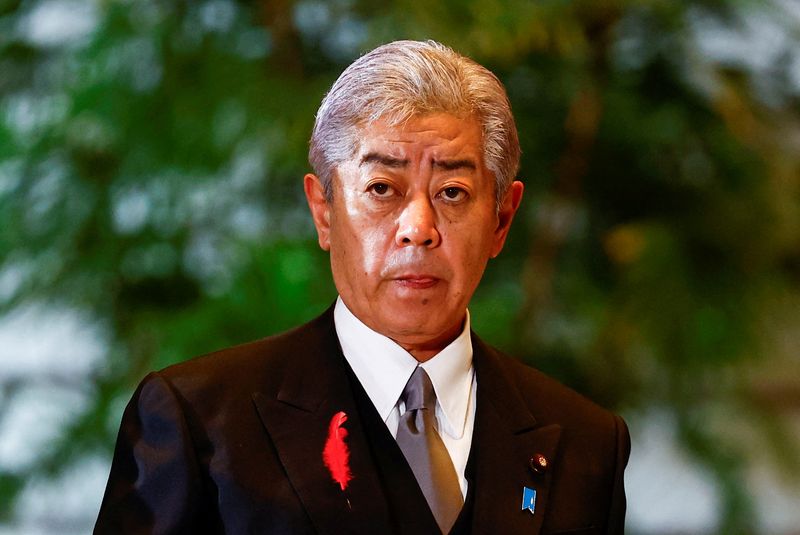Japan’s foreign minister says ‘Asian NATO’ is an idea for the future
2024.10.02 04:16
TOKYO (Reuters) – The idea of an “Asian NATO” floated by Japan’s new prime minister is one to consider in the mid- to long-term but not imminent, the new foreign minister, Takeshi Iwaya, said on Wednesday.
Asian nations have expressed skepticism and reticence in response to the call from Prime Minister Shigeru Ishiba, who took up his post on Tuesday.
“I think it’s one idea for the future,” among efforts to create a multi-layered network of like-minded countries and boost regional deterrence, Iwaya told a news conference in Tokyo.
“It’s difficult to immediately set up a mechanism that would impose mutual defence obligations in Asia, so it’s more of a vision for the future.”
In a paper to the Hudson (NYSE:) Institute thinktank in September, Ishiba had argued for locking Washington into an “Asian NATO” as a way to deter China from using military force in Asia.
On Tuesday, Indian Foreign Minister Subrahmanyam Jaishankar countered that the South Asian did not share the vision for an “Asian NATO”, saying it had never been an ally of another country and took a different approach.
The United States has also quietly brushed off the idea.
It was too early for such talk, Daniel Kritenbrink, the U.S. assistant secretary of state for East Asia and the Pacific, said last month.
Such a framework would not be aimed at any specific country, Iwaya said when asked at Wednesday’s press conference whether it was targeting China.

“The best way would be for a defence and security co-operation relationship that spans the Indo-Pacific without excluding any specific nation,” Iwaya said.
The new defence minister, Gen Nakatani, told a separate press conference that Ishiba had not asked his ministry to pursue a proposal to set up an Asian equivalent of NATO.








